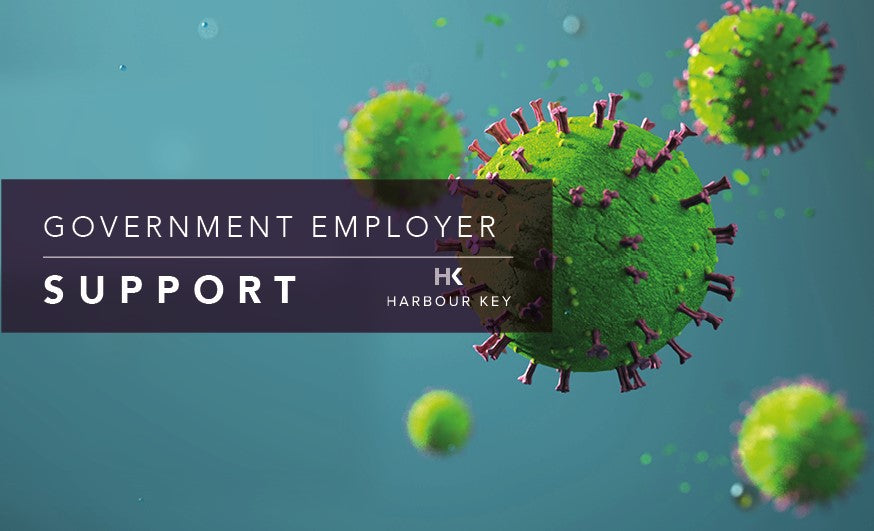
With Government announcements on the increase and new measures being introduced as the number of Covid-19 positive cases accelerate, we thought we should take a step back and recap what is available to support employers in respect of employees’ wages, whilst also introducing the further support measures The Chancellor announced on Friday afternoon, to support businesses across the UK required to close their premises due to coronavirus restrictions.
There are four Government wage support schemes which you will hear about, all of which are not active currently, so some cashflow management and communication with employees will be required, as one scheme closes and another opens. The schemes can be summarised as:
-
The Job Retention Scheme, also known as the furlough scheme – the longest running of the Government support measures, announced back at the end of March, when the Government went into national lockdown;
-
The Job Support Scheme, announced by The Chancellor at the end of September as part of his Winter Economy Support package;
-
The Retention Bonus Scheme, a follow up package to the Job Retention Scheme, to encourage employers to retain employees providing a one-off payment February 2021;
-
The Expanded Job Support Scheme announced on Friday afternoon.
We have summarised a bit more detail and some links below on each scheme.
The Job Retention Scheme
We will not spend a lot of time of this scheme since, due to the period of time it has been in place, most employers who have required the scheme have been making claims. Since July, the scheme became more flexible with employees being able to work part of their contractual hours, but with employers having to make an increased contribution. The scheme is expected to end on 31 October.
Our key message in respect of this scheme is making sure you have your paperwork in order to support your claims in case of HMRC check, and if you have overclaimed using the HMRC amnesty to report and pay back the overclaim.
Job Support Scheme

The Job Support Scheme (“JSS”) was announced by the Chancellor as part of his winter economic plan, along with other support measures, such as further tax deferment plans. The JSS does not take effect until 1 November 2020 and is aimed at retaining workers in viable jobs.
To qualify for the scheme the employee needs to be working at least a third of their normal hours. The employer pays at least 33% of the employees’ monthly wages. The remaining two-thirds of usual pay will be split between the employer and the government, each paying 33%. The result is the employees will receive 77% of their usual monthly wage in total, with the employer paying at least 55% of wages.
The JSS will be open to all eligible employers with a UK bank account and covered by PAYE.
Employees will be able to “cycle on and off” the scheme and will not have to work the same pattern each month.
Employers will be reimbursed by the government after work has been done. The short-time working subsidies are designed to sit alongside the government’s jobs retention bonus (see below).
Further details about the scheme and some examples can be found at our September Business Forward Update.
Job Retention Bonus Scheme (“the bonus scheme”)
The bonus scheme aims to provide additional support to employers who have retained their furloughed employees in employment after the Job Retention Scheme ends.
It consists of a one-off payment to employers, of £1,000 for every employee for whom they previously claimed under the furlough scheme, and who has remained continuously employed through to 31 January 2021.
Employers will be able to claim the bonus from February 2021 after they have filed PAYE for January. More details on the exact mechanism are expected soon.
To be eligible, the employee must have earned at least £520 a month on average between 1 November 2020 and 31 January 2021 (a total of at least £1,560 across the three months). The employee does not have to be paid £520 in each month but must have received some earnings in each of the three calendar months that have been paid and reported to HMRC via Real Time Information PAYE reporting. The employee also must not be serving a contractual or statutory notice period that started before 1 February 2021.
The bonus received by the employer will be taxable, so must be included as income when calculating their taxable profits for self-assessment or corporation tax.
The Expanded Job Support Scheme
This was the measure announced on Friday afternoon, in advance of the Government’s three tier lockdown measures which is likely to see some businesses having to close.
The key points of the scheme:
- It is to support businesses across the UK required to legally close their premises due to coronavirus restrictions either national or local.For example, under the strictest lockdown measures, pubs and restaurants are likely to be required to close;
- The government will pay two thirds of employees’ salaries while the business is closed, up to a maximum of £2,100 a month;
- Businesses will only be eligible to claim the grant while they are subject to restrictions and employees must be off work for a minimum of seven consecutive days;
- Under the scheme, employers will not be required to contribute towards wages and only asked to cover NIC and pension contributions;
- The scheme will begin on 1 November (in line with the JSS) and will be available for six months, with a review point in January. In line with the rest of the JSS, payments to businesses will be made in arrears via a HMRC claims service that will be available from early December.
Employers will need to cash flow manage this position, as some businesses could be forced to close earlier than 1 November, so will need to use the Job Retention Scheme, and thereafter will not be able to claim another payment until December(date to be confirmed).
- In addition to expansion of the JSS, cash grants will be available to businesses in England shut in local lockdowns to support with fixed costs. These grants will be linked to rateable values, with up to £3,000 per month payable every two weeks, (this compares to the current £1,500 every three weeks).
HMRC will check claims, as with the job retention scheme and payments may be withheld or need to be paid back if a claim is found to be fraudulent or based on incorrect information. Grants can only be used as reimbursement for wage costs actually incurred.
Employers must agree the new scheme with the relevant staff, making any changes to the employment contract by agreement, and notify the employee in writing. This agreement must be made available to HMRC on request. So again, as with all these measures, it is important to keep your paperwork in order.
As an extra fraud prevention measure, HMRC intend to publish the names of employers who use the scheme, and therefore employees will be able to find out if their employer has claimed for them under the scheme, so that the employee is aware of what is going on and can report their employer for an abuse of the scheme.
The Government have released a short questions and answers factsheet on the expanded scheme following the announcement, which can be found at HERE.
As ever, matters are still developing and we will endeavour to keep you up to date, flag to you opportunities and signpost the key details as best as we can via our updates.
We know that this is a very difficult time for all businesses and some difficult decisions are having to be made, together with a constant changing picture.
If you want to discuss or just have a chat, please do not hesitate to call our offices.
It's vital that everyone follows the guidelines & rememberS:
#Hands #Face #Space




